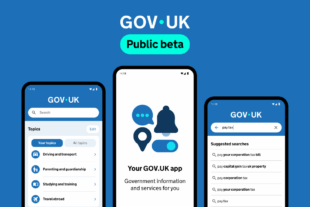In the last couple of months, we’ve been researching the needs of specialist users. Specialist users are broadly speaking the users of GOV.UK whose needs are dictated by their specialist interest or profession.
As more agencies transition to GOV.UK, the number of specialist users who visit the site regularly will dramatically increase. Our goal is to identify how specialist user needs differ from the wider public so we can quickly test out ideas to support them better on GOV.UK.
We started towards the end of last year with these research objectives:
- how do we define specialist users?
- how do specialists currently find information online?
- what are their habits and behaviours?
- what particular user needs do specialist users have?
- what patterns are common across different types of specialist?
Our approach to research has been quick and lightweight. We began with a series of Skype interviews with different specialist user groups to understand more about how they currently find information online.
We spoke to people in the oil and gas industry, the pharmaceutical industry, healthcare professionals, people working in education at schools and local authorities, and people working in childcare. In this first round, we focused on groups who need to find information that is generally not of interest to the public.
Following these interviews, we ran a card sort with these user groups to help us understand how they naturally group and label information. With some, such as the pharmaceutical industry, this revealed obvious groupings that roughly matched our expectations, but with others, such as those working in education, there is far less consensus.
One explanation is that the audience for information on education is very diverse and while each person has a small distinct set of user needs, there is often overlap between different users. For example, we spoke to a school site manager who was also a school governor and involved in business planning. His mental model for how information should be grouped varied greatly from the business manager who also handled data submission.
This suggests that we may need to surface a wider set of information at a higher level to make sure that each user can find what they are looking for. We’ll be exploring this in another round of research with users who work in this area.
Next we are testing some of our hypotheses in a working prototype using real content. We’ve also pushed our first version live under the beta label for Oil & Gas content on GOV.UK.
We’re including more user groups in research as we progress, particularly those where there may be more overlap with information that is relevant to the general public. In a follow-up blog post, I’ll share more about what we’ve learnt so far and the hypotheses we are working with.
 The GOV.UK app went live in public beta in July 2025. Find out what’s been happening, and what’s coming next,
The GOV.UK app went live in public beta in July 2025. Find out what’s been happening, and what’s coming next,
4 comments
Comment by @tewilliam posted on
Glad to hear these users are now being researched in depth. Whenever I tell certain friends I work in government digital they are very quick to ask where all the info has gone that they need for their work.
Can we suggest users for you to interview? I'd love to nominate those who have grumbled to me about GOV.UK!
Comment by Gillian posted on
^ I hear these gripes too - but when I ask what is missing they don't really come up with any concrete answers. However, one consistent point is that people don't know which team to contact, perhaps this is something that needs further investigation.
Comment by Cath Richardson posted on
Thanks for both your comments. We know there are a lot of users with a specialist interest in certain information provided by government who would like to share feedback. There's some work happening right now to work out how to gather this feedback and share more about what we're doing about it. Hopefully we'll have more on this very soon.
Comment by Ben Schofield posted on
Hi Cath,
I'm looking to contact you directly as I'm working on a project for the MoJ. What I want to do is match up your UX tools and research you are using with the work we are doing in the courtrooms.
ben.schofield@uk.sopragroup.com